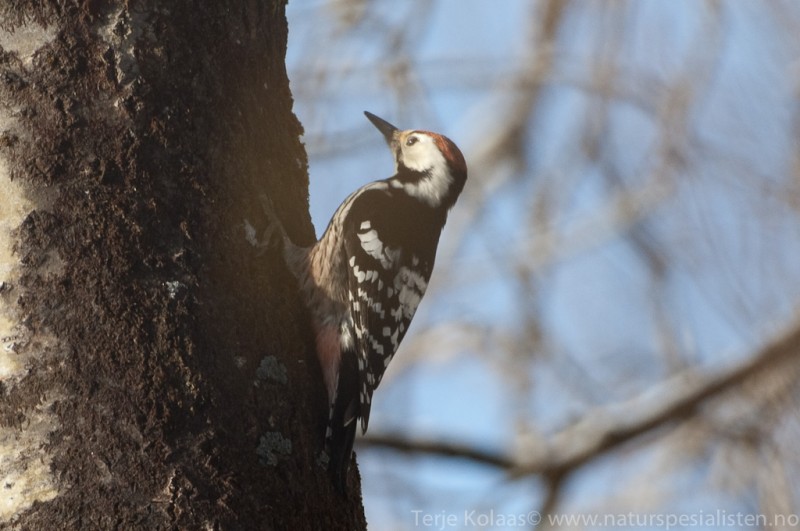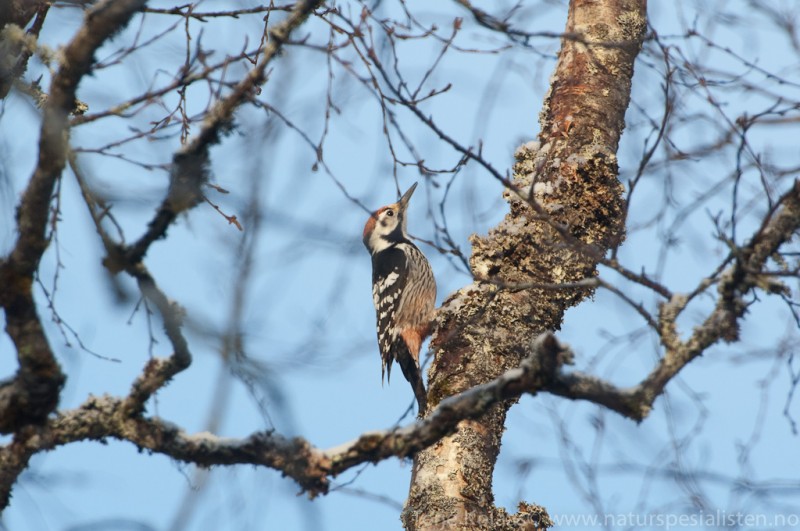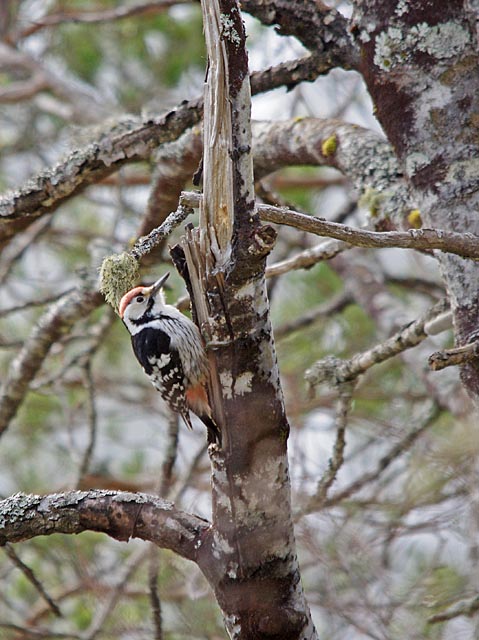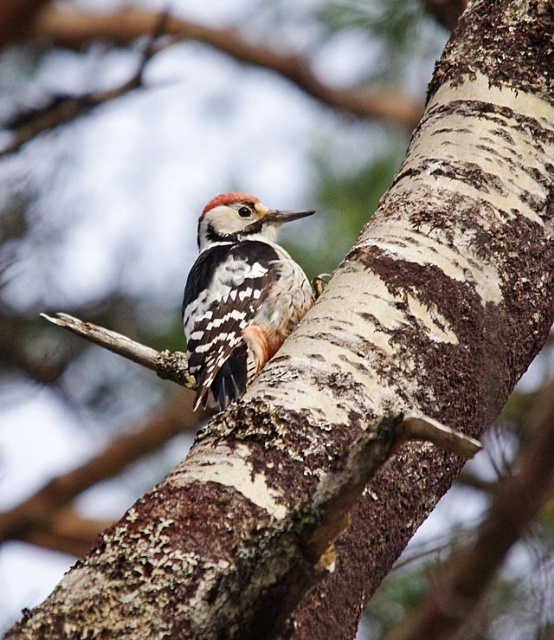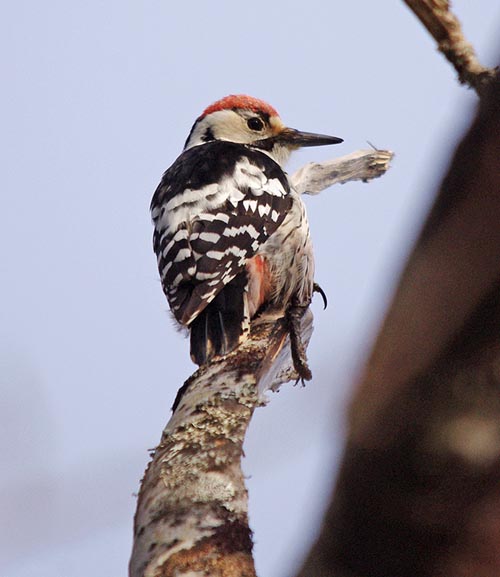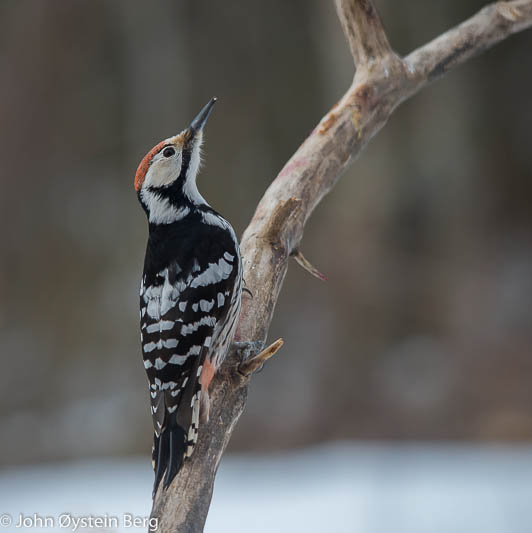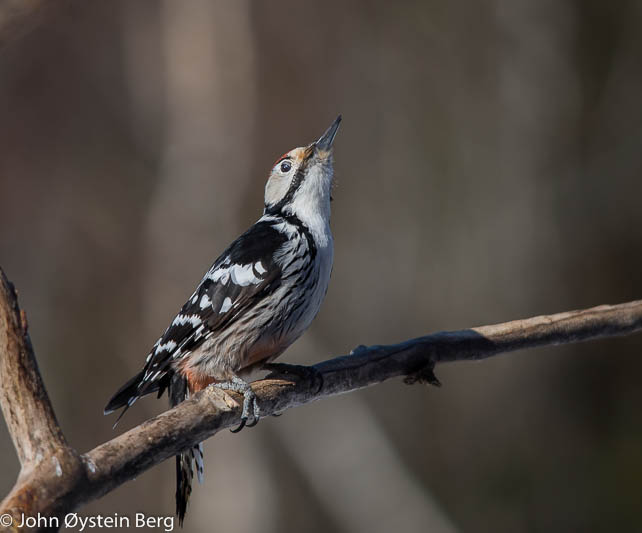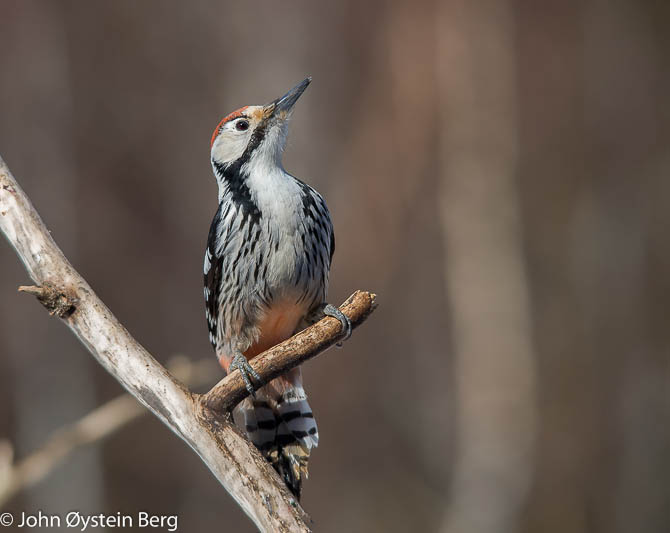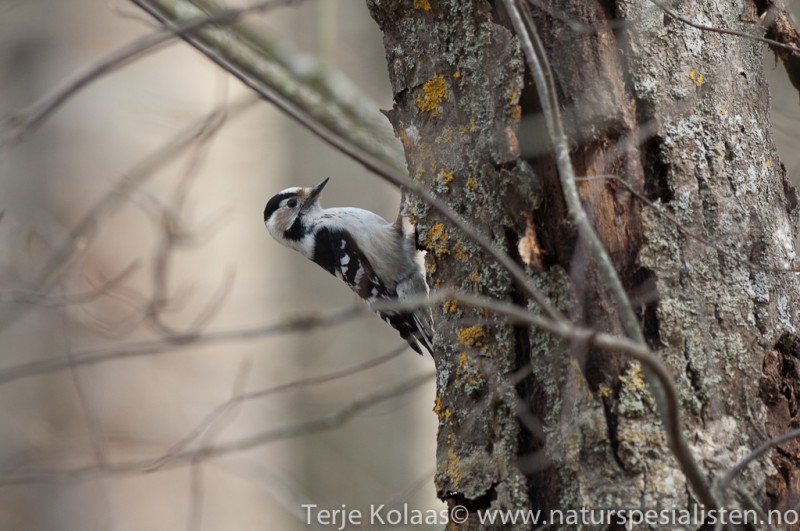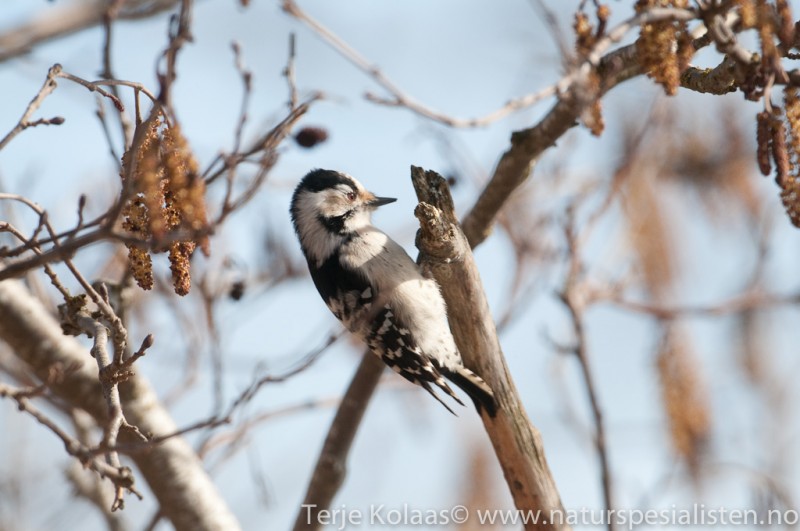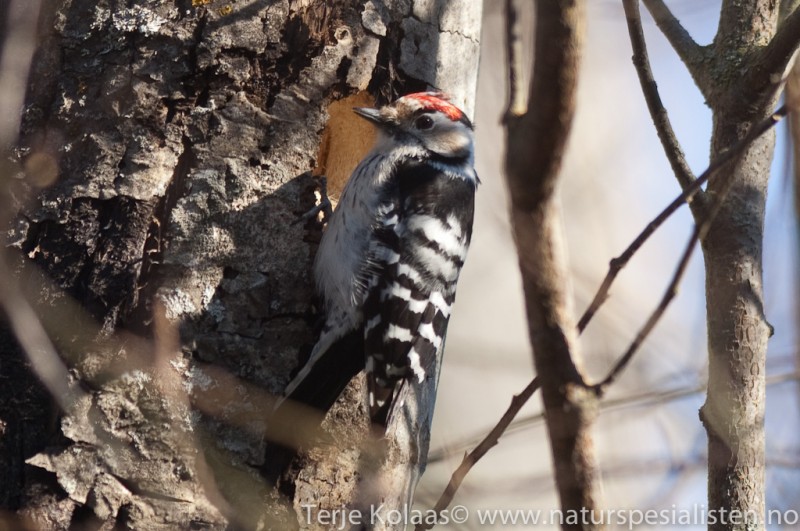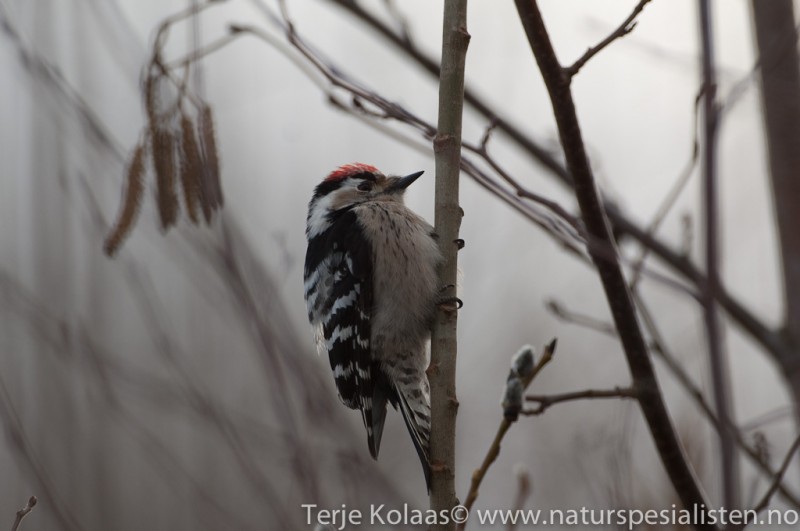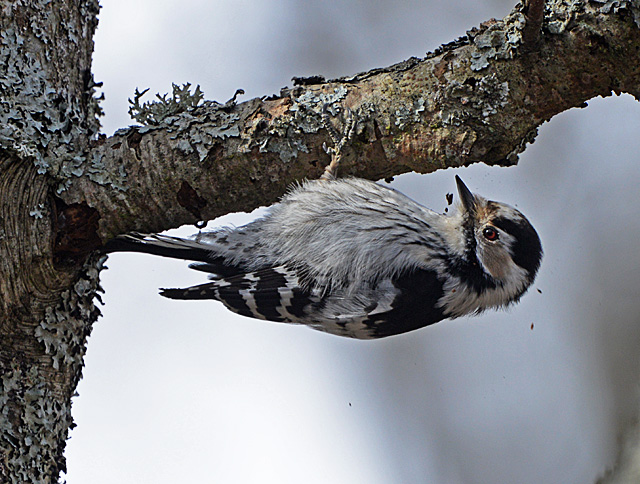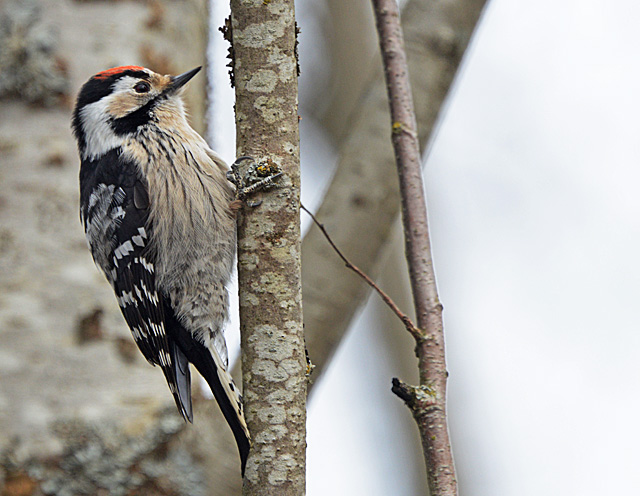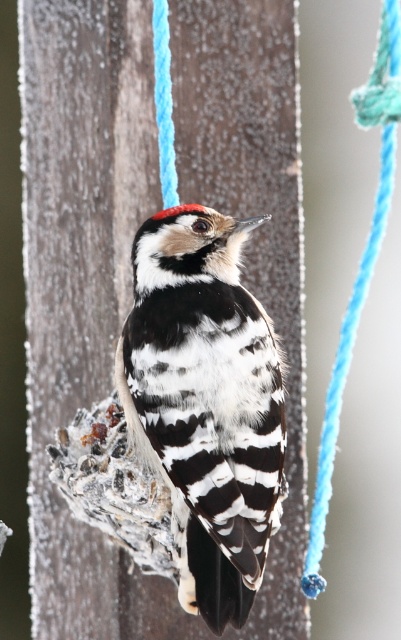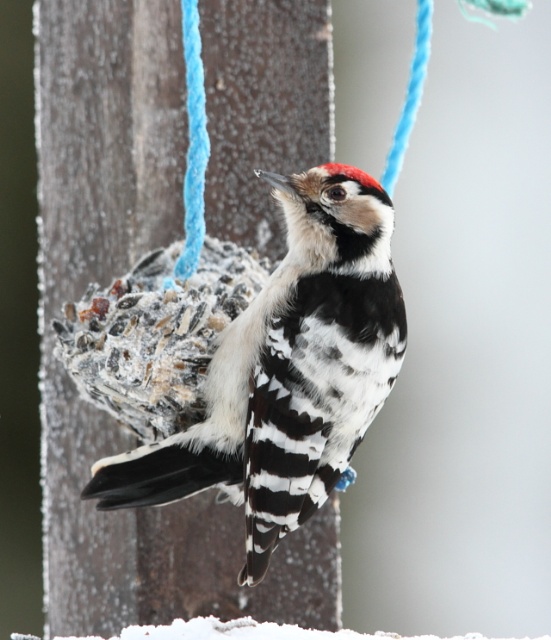White-backed Woodpecker (Dendrocopos leucotos)
Lesser Spotted Woodpecker (Dryobates minor)
Upper back strongly barred, lower back all white (barred in south-east Europe subspecies). Underparts streaked. Whole crown red in male. Vent pinkish red, not deep red as in Great Spotted, and less marked. Most likely to be confused with Middle Spotted Woodpecker, but is clearly bigger, has longer bill and black moustache stripe connects to base of bill. Easily recognized in flight due to strong wing-bars and white lower back.
Sound:Drumming noticeably longer and more powerful than Great Spotted, with accelerated ending (similar to Three-toed Woodpecker but faster). Contact call similar to Great Spotted, but slightly deeper and softer; "kjuk".
Drumming, contact call:
Distribution:
Wikipedia: map (se also Xeno-canto below)
Ecology:Birdlife ecology
Links:
Observation.org Latest observations
Image search Flickr NB! May give other species
CCVery small, almost sparrow-sized, woodpecker. Most likely to be confused with Great Spotted Woodpecker, but vent never red (always in Great Spotted). Back heavily barred, and underparts streaked. No large patches of white on upperparts. Male with red crown, female purely black and white. Bill small and slender. More likely to be seen foraging in branches than most other woodpeckers. Fluttering flight.
Sound:Frequently drums in quite long series. Much longer than Great Spotted, and without ritardando. Most common call a series of merlin-like "ke-ke-ke-ke-ke-ke" given at fairly stable pitch, and less hoarse than Merlin. Differs from Wryneck in lacking marked rise and fall in pitch, and being less plaintive.
Drumming, song:
Distribution:
Xeno-canto: map
Ecology:Birdlife ecology
Links:
Observation.org Latest observations
Image search Flickr NB! May give other species
CCCC-photo:Stefan Berndtsson, Licence,Link, CC-photo:Maggi_94, Licence,Link,

 English
English Albanian
Albanian
 Armenian
Armenian
 Bulgarian
Bulgarian
 Catalan
Catalan
 Croatian
Croatian
 Czech
Czech
 Danish
Danish
 Dutch
Dutch
 Finnish
Finnish
 French
French
 Georgian
Georgian
 German
German
 Greek
Greek
 Hungarian
Hungarian
 Italian
Italian
 Latvian
Latvian
 Lithuanian
Lithuanian
 Macedonian
Macedonian
 Norwegian
Norwegian
 Polish
Polish
 Portuguese
Portuguese
 Romanian
Romanian
 Russian
Russian
 Sami : Lule sami
Sami : Lule sami
 Sami : North sami
Sami : North sami
 Sami : South sami
Sami : South sami
 Scientific names
Scientific names
 Serbian
Serbian
 Spanish
Spanish
 Swedish
Swedish
 Ukrainian
Ukrainian

